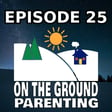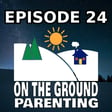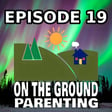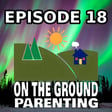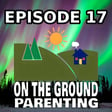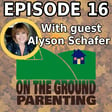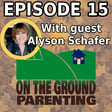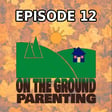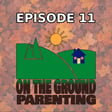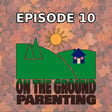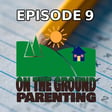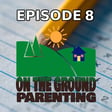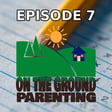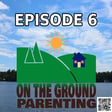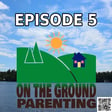
The Long Game: Ain't Misbehavin' - Part 2 of our chat with Alyson Schafer
Welcome to Episode 14 of On the Ground Parenting, the second part of our special series with international best-selling author and Adlerian psychologist, Alyson Schafer! The conversation picks up where it left off, reinforcing that our children offer us an opportunity for personal growth. Alyson continues to offer insight into the Adlerian framework, challenging the idea that more parenting information always makes things easier.
Alyson introduces a vital Adlerian concept: goal-directed behaviour. She explains that a child's so-called misbehaviour is actually a "mistaken approach" —a creative, smart way for them to solve a problem and achieve a goal, like getting more attention or delaying bedtime. She stresses that children act this way at a pre-conscious level and are not being deliberately mischievous.
The hosts conclude with the realization that we cannot keep everyone happy all the time. Alyson offers a comforting reminder that the "thank you" you're looking for from your kids won't come in the moment, but rather in the quality of the relationship you've built over the longer game.
In This Episode
- [04:12] The hurdle of overwhelming information and the need for an organizing framework.
- [06:00] Using the Adlerian philosophy as a "periodic table" to discern information and avoid being overwhelmed.
- [07:08] The differentiator: understanding children's behaviour as goal-directed.
- [08:18] A child's "misbehaviour" is really a creative problem-solving effort to reach a goal.
- [10:31] Why punishment doesn't work: children act at a pre-conscious level and often don't know why they do what they do.
- [11:39] Well-behaved children tend to get ignored, and off-task behaviour gets engagement.
- [13:38] The subjectivity of the child: two siblings can have the exact same experience but interpret it completely differently.
- [16:36] The longer game: the thank you will come back in the quality of the relationship and their continued desire to spend time with you.
Connect with Us
Find Alyson's books, podcast, and free resources at alysonschafer.com.
If you enjoyed this episode and want to sponsor or support the show, or even ask a question of our hosts, visit the Central Hub at linktr.ee/onthegroundparenting.
On the Ground Parenting is a production of Muskoka Family Focus' Parent Education Program. The podcast is produced, engineered, and published by Red Juice Studio.
